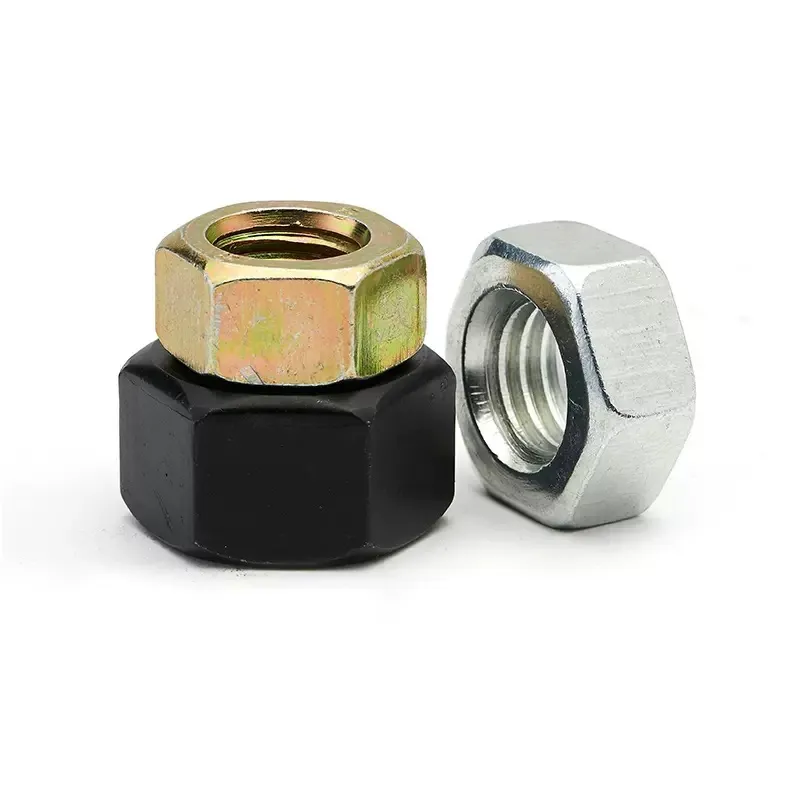

Exploring the Design and Applications of Stud Bolts in Various Industrial Settings
Th8 . 13, 2024 19:06 Back to list
Exploring the Design and Applications of Stud Bolts in Various Industrial Settings
Understanding Stud Bolts The Essential Fastener for Industrial Applications
In the realm of industrial fastening solutions, stud bolts play a crucial role. These versatile and robust fasteners are designed to secure components in various applications, particularly in sectors like oil and gas, construction, and manufacturing. One specific type, known as stud bolt 3 8, represents a standard size that balances strength and accessibility, making it a popular choice among engineers and technicians.
What Are Stud Bolts?
Stud bolts are long, threaded rods that can be used as a fastening solution in high-stress applications. Unlike traditional bolts, which have heads on one end, stud bolts are usually threaded on both ends, allowing them to be fastened into place using nuts on either end. This design contributes to their ability to withstand high levels of pressure and tension, making them ideal for environments that require durability and reliability.
Specifications of Stud Bolt 3 8
The designation 3 8 refers to the diameter of the stud bolt, which is 3/8 inch. This size is widely used in various applications due to its strength and versatility. The thread pitch, or the distance between threads, is an important specification as well, often standardized for specific applications to ensure compatibility and ease of use. Common materials for stud bolts include carbon steel, stainless steel, and alloy steel, each offering different levels of corrosion resistance and tensile strength.
Applications
Stud bolts are prevalent in several industries
1. Oil and Gas In this sector, equipment and pipelines often operate under extreme conditions. Stud bolts are critical for ensuring that flanges and valves are tightly secured, preventing leaks and ensuring safe operation.
2. Construction In the construction industry, stud bolts are used to anchor steel structures, machinery, and other heavy equipment. Their ability to handle significant loads makes them essential for structural integrity.
stud bolt 3 8

3. Manufacturing Various manufacturing processes require the assembly of large machinery and frameworks. Stud bolts facilitate the assembly and disassembly of these components, aiding in maintenance and repairs.
Advantages of Using Stud Bolts
Stud bolts offer several advantages that enhance their functionality and appeal
- High Strength Their design allows them to handle high-stress loads without deforming, making them suitable for critical applications.
- Ease of Installation Stud bolts can be placed in tight spaces, and the use of nuts on both ends allows for efficient fastening and adjustment.
- Versatility Available in various materials and sizes, stud bolts can be tailored to meet specific application needs.
- Corrosion Resistance For applications in harsh environments, stainless steel or coated stud bolts can provide additional protection against corrosion.
Conclusion
In summary, stud bolts, particularly the 3 8 variant, are indispensable in a wide array of industrial applications. Their robust design, high-strength capabilities, and versatility make them a preferred choice for engineers and technicians across multiple sectors. As industries continue to evolve and demand higher performance from their fasteners, stud bolts will undoubtedly remain a critical component in ensuring the safety, reliability, and efficiency of various systems. Whether you are involved in oil and gas, construction, or manufacturing, understanding the role and advantages of stud bolts will empower you to make informed decisions in your fastening solutions.
Latest news
-
Hot Dip Galvanized Bolts-About LongZe|High Strength, Corrosion Resistance
NewsJul.30,2025
-
High-Strength Hot Dip Galvanized Bolts - Hebei Longze | Corrosion Resistance, Customization
NewsJul.30,2025
-
Hot Dip Galvanized Bolts-Hebei Longze|Corrosion Resistance&High Strength
NewsJul.30,2025
-
High-Strength Hot-Dip Galvanized Bolts-Hebei Longze|Corrosion Resistance&High Strength
NewsJul.30,2025
-
Hot Dip Galvanized Bolts-Hebei Longze|Corrosion Resistance&High Strength
NewsJul.30,2025
-
Hot Dip Galvanized Bolts - Hebei Longze | Corrosion Resistance, High Strength
NewsJul.30,2025

